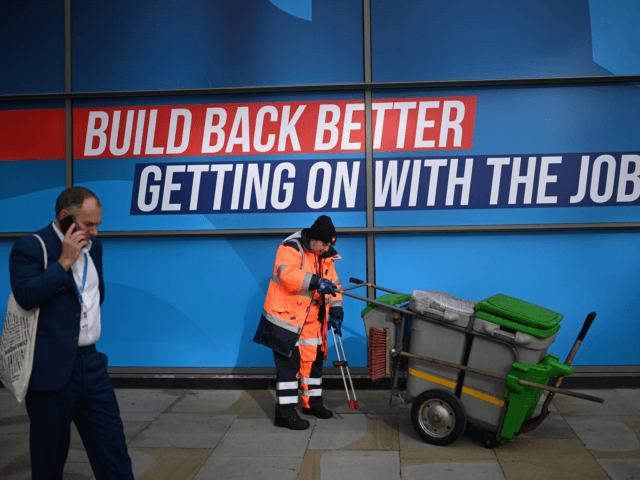In the Build Back Better effort to radically transform the UK’s economy, millions of Britons will be paid to ration their energy usage in a trial programme starting this week.
On Friday, an estimated 1.4 million households in Britain will receive financial compensation if they reduce their energy consumption during peak hours.
The temporary scheme is intended to determine how the National Grid should move forward as Britain transitions away from traditional forms of energy into what’s pushed as a green future. One of the major issues in the move towards supposedly renewable energy sources is the problem of intermittency.
As former President Donald Trump put it in 2018: “What happens when the wind doesn’t blow?”. While the question was dismissed as unreasonable at the time, nevertheless the actual experience of months of the wind blowing less than expected for the UK has contributed to increased demand for gas, further driving up prices amid a background of already significantly higher than normal demand for the resource.
Isabelle Haigh, head of National Control at ESO, told The Telegraph: “System flexibility is vital to help manage and reduce peak electricity demand and keep Britain’s electricity flowing securely.
“This trial will provide valuable insight into how suppliers may be able to utilise domestic flexibility to help reduce stress on the system during high demand, lower balancing costs and deliver consumer benefits.”
The rationing scheme will see 1.4 million customers of Octopus Energy with smart meters receive free electricity during two-hour windows, including from 4:30 to 6:30 pm, should they cut their energy below normal levels.
In order to prevent the possibility of roaming blackouts as the UK makes its green transition, officials want to determine if they can encourage Britons to curb their electricity usage during peak hours, such as when people arrive home from work.
Another proposed fix to the energy storage shortage exacerbated by the Build Back Better move is to use electric cars throughout the country as a giant, distributed battery system. Under the proposal, privately owned cars would store excess energy and then sell it back to the National Grid during times of need.
In order to achieve such a scheme the fleet of electric cars will likely need to be much higher than today, however, and the government is already forcing consumers into making the decision, with the sale of cars with internal combustion engines set to be banned by 2030. Last year, just 11.6 per cent of car sales were battery electric vehicles.
Farage Warns Boris ‘Partygate’ Nothing Compared to Greater Scandal of Tory Failure to Govern Conservativelyhttps://t.co/2hLCIhQrSl
— Breitbart London (@BreitbartLondon) February 8, 2022
The energy rationing scheme comes amid a cost of living and energy crunch in Britain, with households facing a record 54 per cent increase to energy bills allowed by regulators after months of massive rises in wholesale costs.
Leading charities have warned that the steep rise in energy costs could see as many as 6 million households into fuel poverty if the government fails to alleviate the financial burden.
Yet, Prime Minister Boris Johnson’s government has refused to scrap taxes on energy, such as the Value Added Tax (VAT), which Johnson previously pledged would be a benefit of Britain freeing itself from the European Union.
Estimates have claimed that taxes to subsidise so-called green alternatives account for 25.5 per cent of the average household’s energy bills.
Johnson has faced criticism from leading Brexiteers in the country, such as Nigel Farage and the government’s former Brexit negotiator Lord David Frost for failing to deliver on the promises of the independence movement in pursuit of his globalist Build Back Better green agenda.
Despite being the leader of the Conservative Party, Mr Johnson has vowed to radically transform the UK economy and transition to a ‘Net-Zero’ carbon emission economy by the year 2050, which is expected to cost the nation trillions, the vast majority of which will fall on the shoulders of average consumers.
Build Back Better: From Boris Johnson to Greta and Extinction Rebellion, Britain’s Year of Climate Craziness https://t.co/L4Vn4BAqMi
— Breitbart London (@BreitbartLondon) December 31, 2021
Follow Kurt Zindulka on Twitter here @KurtZindulka

COMMENTS
Please let us know if you're having issues with commenting.